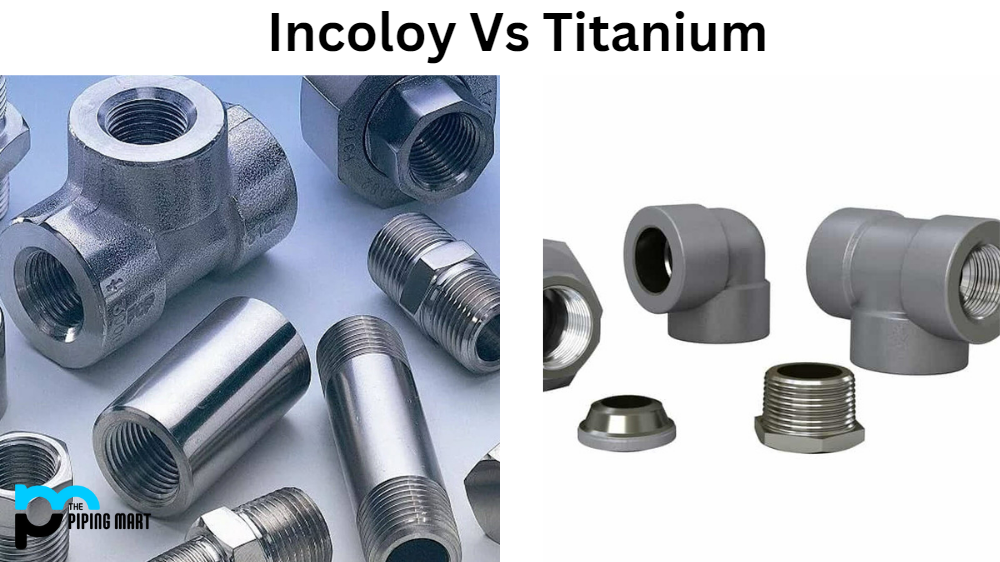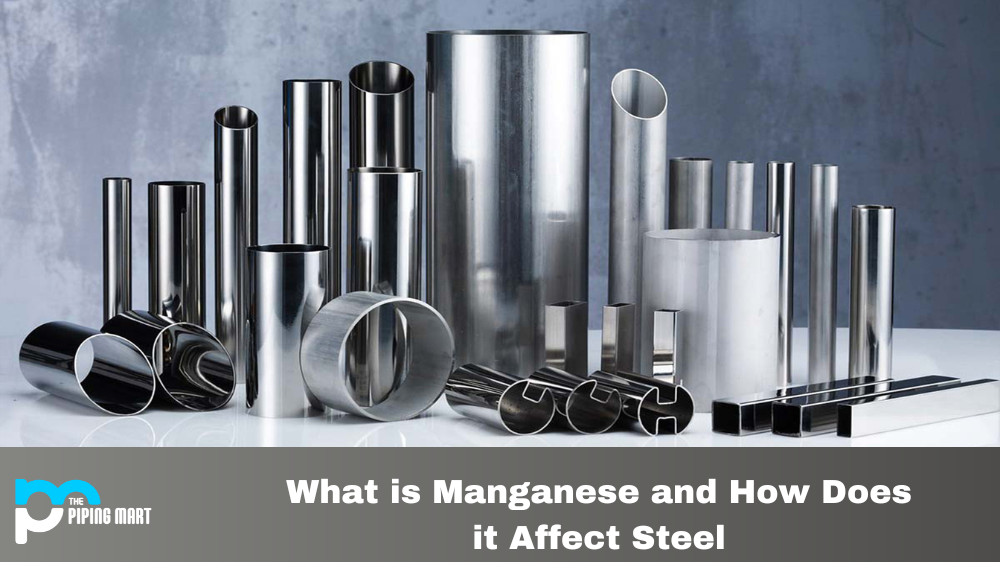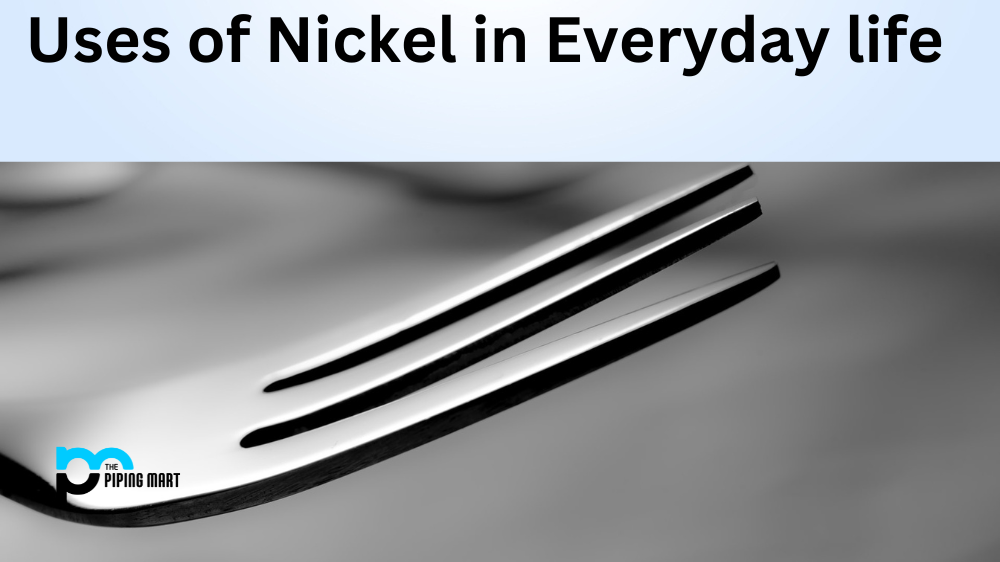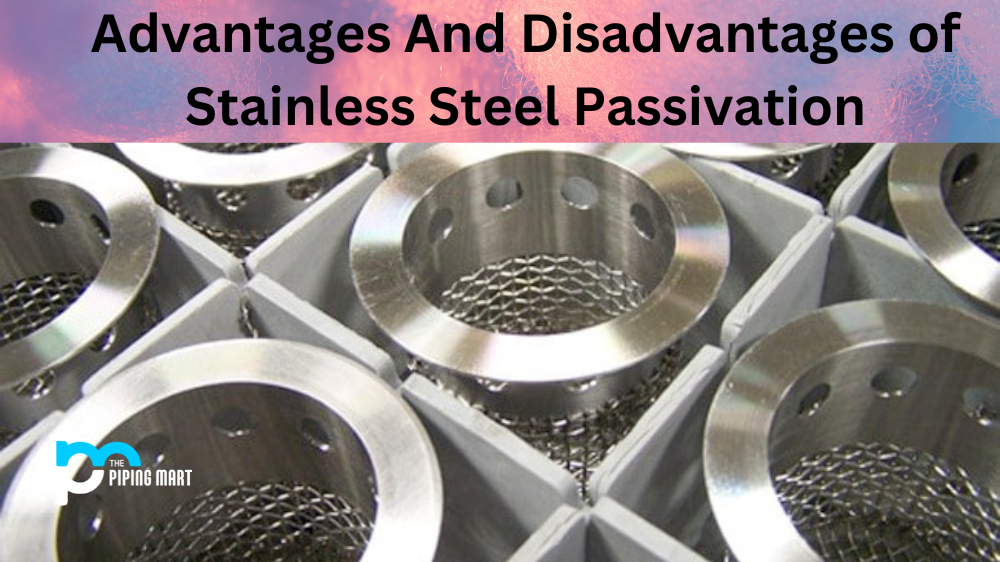When it comes to metal alloys, there are a lot of options. From aluminium to steel, every alloy has its unique benefits. Two popular choices are incoloy and Titanium. Both have their advantages and disadvantages that make them ideal for certain applications. Let’s compare these two metals and see which is right for you.
Difference Between Incoloy and Titanium
Incoloy is an alloy made up of nickel, iron, chromium, and other elements. It is a strong corrosion-resistant metal but not as strong as Titanium. It also has excellent heat resistance properties that make it ideal for high-temperature applications such as gas turbines or industrial furnaces. However, incoloy can be difficult to fabricate or weld due to its hardness and brittleness.
On the other hand, Titanium is much stronger than incoloy but not as corrosion-resistant. It does not rust like steel but can be susceptible to pitting or crevice corrosion if exposed to certain acids or chlorides over long periods of time. Titanium also offers an excellent strength-to-weight ratio thanks to its low density, which makes it ideal for aerospace applications such as aircraft frames or engines. However, Titanium is more expensive than incoloy due to its rare nature and difficulty in fabrication.
Price
When it comes to price, Incoloy and Titanium offer quite different solutions. In general, Incoloy is far more affordable than Titanium due to its wide availability and relatively low cost of production. On the other hand, while Titanium offers many advantageous qualities, it usually has a much higher price tag, which may not be suitable for those on a budget. If you are looking for strength on a budget, then Incoloy may be your choice; however, if money is no object, then Titanium should be your go-to metal for many reasons, including durability and temperature resistance.
Strength
The debate between Incoloy and Titanium is hotly contested as they’re both advanced metals with unique qualities of strength and durability. Incoloy boasts corrosion resistance, excellent tensile strength, and a high level of structural integrity at elevated temperatures. Meanwhile, Titanium packs a punch in tensile strength and toughness but is lighter than other metals, making it easier to manipulate and bend for any project. So the question becomes, which metal is better for your needs? It will depend on the specific application – though chances are you will go right with both.
Weight
When considering metal components for a design project, it’s important to consider durability and weight. Incoloy and Titanium are two popular materials that can be used due to their strength, versatility, and capability of being formed into different shapes. The main difference between the two is found in their relative weight. Incoloy has a greater density than Titanium, making it heavier and giving it an increased strength-to-weight ratio compared to its lighter counterpart. Despite Incoloy’s additional weight, it is still adequately lightweight for most design requirements. Both metals offer excellent performance benefits that can add value to your designs. However, understanding which one best fits your needs will ultimately depend on the project’s intended purpose and whether or not you need the added weight that Incoloy provides.
Composition
One of the main differences between Incoloy and Titanium is their composition. Incoloy contains nickel, chromium, iron, molybdenum, copper, and Titanium, while Titanium only contains Titanium and a small amount of oxygen. The composition of Incoloy gives it superior resistance to corrosion and oxidation, while the composition of Titanium gives it superior strength.
Properties
Another difference between Incoloy and Titanium is their properties. Incoloy is non-magnetic and has a low coefficient of thermal expansion, while Titanium is magnetic and has a high coefficient of thermal expansion. Additionally, Incoloy has a higher melting point than Titanium.
Uses
Due to their different properties, Incoloy and Titanium have other uses. Incoloy is typically used in high-temperature applications such as heat exchangers and boiler tubes, while Titanium is often used in aerospace applications due to its light weight and strength.
Conclusion:
In conclusion, both incoloy and Titanium offer their unique benefits when it comes to metal alloys. Incoloy offers excellent resistance against corrosion, while Titanium provides a superior strength-to-weight ratio making it ideal for aerospace applications. Ultimately, the choice between the two will depend on your specific application needs, so consider both carefully before making your decision!

Abhishek is a seasoned blogger and industry expert, sharing his insights and knowledge on various topics. With his research, Abhishek offers valuable insights and tips for professionals and enthusiasts. Follow him for expert advice on the latest trends and developments in the metal industry.




